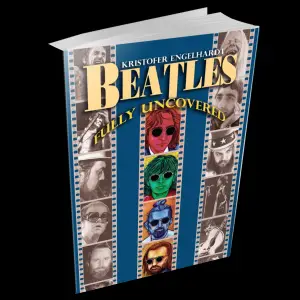Exploring the Shadows: A Reflection on The Nazis and the Occult by Paul Roland
Lately, I’ve been on a quest to understand the complexities of history, especially the dark corners that seem shrouded in myth and misinformation. When I stumbled upon Paul Roland’s The Nazis and the Occult: The Dark Forces Unleashed by the Third Reich, my curiosity piqued immediately. In a world where the entanglement of the supernatural and the political often breeds conspiracies, I found myself drawn to Roland’s exploration of how such dark influences intertwined with Nazi ideology.
From the outset, Roland presents a compelling narrative that walks the tightrope between historical fact and speculative inquiry. The author delves into the ways the Third Reich, a regime notorious for its brutal policies, was also obsessed with the occult, weaving together tales of figures like Heinrich Himmler and his eerie fascination with ancient relics. What stood out for me was the paradox: a nation that boasted of intellectual giants like Goethe and Einstein was led by some of history’s most horrifying characters, entwined in a web of superstition, ritual, and fanaticism.
Roland’s writing style is engaging, filled with vivid descriptions that make the complex history accessible. He offers a rhythmic pacing that seamlessly alternates between exploring Nazism’s myriad influences—from pagan beliefs to esoteric rituals—and the grotesque realities of its political tyranny. This ability to guide the reader through a labyrinth of ideas while maintaining clarity is not easy, but Roland pulls it off exceptionally well.
One of the most intriguing passages discusses Hitler’s obsession with the Spear of Destiny, which he believed possessed mystical powers. The author describes how this artifact became a symbol of authority, demonstrating how deeply intertwined the personal beliefs of these figures were with their political aspirations. An excerpt really struck me: "It’s hard to dismiss the countless witnesses at the Nuremberg Rallies who described Hitler as talking ‘as a man possessed.’" This quote encapsulates the eerie magnetism that the Nazi leadership had on their followers and the depths of their delusions.
That said, the book is not without its complexities. Some reviewers noted that Roland occasionally hedges his conclusions, oscillating between acknowledging the role of dark magic and asserting that evil can thrive independently of occult influences. Personally, I found this duality to be a fascinating reflection on the nature of evil itself—perhaps serving as a reminder that human capacity for destruction needs no external catalyst.
Overall, I believe The Nazis and the Occult is a thought-provoking read for anyone interested in the darker nuances of history, psychology, and the intersection of the occult with real-world power. It serves as a bridge between scholarly exploration and engaging storytelling, making it accessible for both the casual reader and the history buff. If you’re drawn to the bizarre interplay of belief, power, and the unseen forces that may—or may not—affect human actions, this book is sure to enthrall you.
As I closed the last pages, I felt a deeper understanding of the shadows cast by history, along with a poignant reminder of the complexities that lie beneath the surface. This exploration not only enriched my understanding of a dark chapter in history but also ignited a new curiosity about the sometimes horrifying relationship between belief and power. So, if you’re ready to peer into the complex motivations of one of history’s most infamous regimes, I strongly encourage you to dive into this illuminating piece.
You can find The Nazis and the Occult: The Dark Forces Unleashed by the Third Reich here >>






